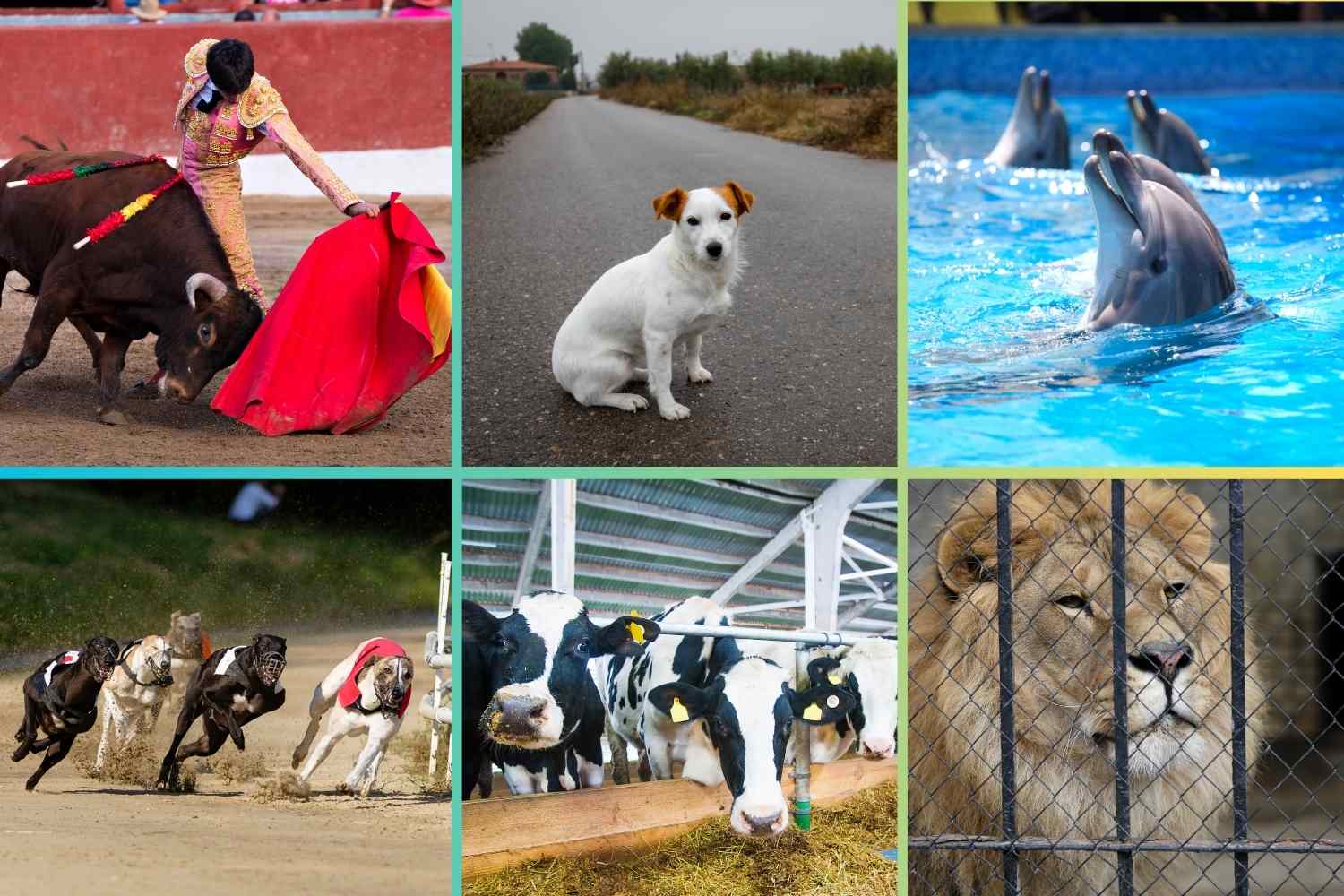Not just environmental disasters and dramatic stories: 2024 ended with a series of exciting milestones for our animal friends. Let's retrace together the victories achieved thanks to the commitment of associations and citizens who fought with enthusiasm and passion

@Canva
2024 was not only a year of disasters, wars, and environmental crises. Fortunately, we also witnessed important victories for animals in Italy and worldwide that gave us hope for a future free of cruelty.
Let’s take a look at the most important battles won by dogs, bulls, cetaceans, and many other creatures that can finally catch their breath.
New Zealand bans cruel Greyhound racing
New Zealand has officially banned the cruel sport of greyhound racing. The ban, which will be fully in place by 2026, was initiated because of the high number of injuries and deaths among the dogs. The New Zealand government said the rate of injuries remains unacceptably high, making this decision necessary to protect the animals.
Greyhound racing has long been a contentious part of the country’s sports and betting culture. In 2021 alone, 232 greyhounds died, and around 900 were injured. These shocking statistics fanned growing public outrage, leading to this long-awaited ban.
Belgium says goodbye to dolphinariums
The exploitation masquerading as entertainment is finally dying! At the end of 2024, Belgium finally forbade dolphinariums. After restrictions were enforced in Brussels and Wallonia, Flanders joined the process.
Over the course of the next few years, the final Bruges marine park will be permanently closed to the keeping of captive dolphins. Aside from the prohibition against any new facility opening, the government has also proposed a number of other changes that enhance the lives of the current captive animals. Such changes include not allowing them to breed or import dolphins, as well as being obliged to build an outdoor pool by 2027.
Stricter penalties for pet abandonment in Italy
The newly instated, highly debated Highway Code of Italy has one very important provision: harsher fines for abandoning animals. In addition to the criminal charges, offenders will have to face a driver’s license suspension ranging from six months up to one year. Those who leave an animal on the road could be imprisoned as long as seven years.
Moreover, in the case where the abandonment causes an accident and leads to injury or death, the abandoning party will face charges of vehicular homicide and serious bodily harm.
The end of bullfighting in Colombia
Colombia has finally done away with the obsolete, brutal sport of bullfighting. After a long battle by animal rights groups and citizens, the shows will be banned starting in 2027. With this decision, Colombia is now the sixth Latin American country to ban this cruel tradition that puts both bulls and people in danger.
Before the ban takes complete effect, the government will have absorbed the workers of the industry into other work and the bullfighting arenas of the country converted for sports and cultural events.
Berkeley becomes the first U.S. City to ban factory farming
In 2024, Berkeley became the first city in the United States to ban factory farming. A citywide referendum came out on the side of activists, marking a major victory for animals and the environment.
The measure passed with over 60% of the vote, marking a groundbreaking step that may lead to similar action taken around the world.
Costa Rica closes all Zoos
No more animals in cages! Costa Rica has just closed its last two state-run zoos, eleven years after passing a historic law banning the captivity of all wild animals. Hundreds of animals, from jaguars and crocodiles to spider monkeys and sloths, had been housed in these facilities.
But that’s not all: where the Simón Bolívar Zoo once stood, a new green space will be opened right in the middle of the capital, similar to a botanical garden.
